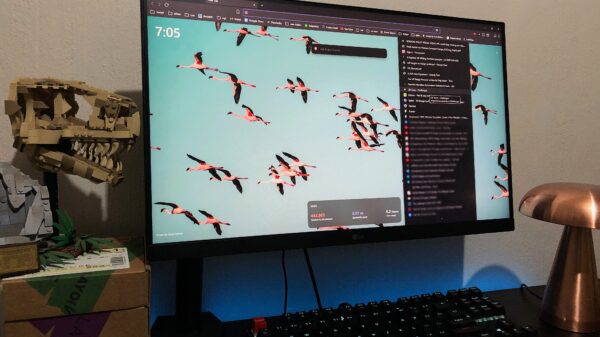The landscape for electric vehicle (EV) adoption in the United States is evolving, despite challenges such as the newly introduced **OBBA tax law**. This regulatory change was expected to dampen interest in EVs, yet the long-term trajectory remains firmly in favor of electrification. Fleet owners are increasingly embracing zero-emission mobility, and automakers are responding with a wider array of electric vehicle options. New players in the fleet electrification service sector are also emerging, providing essential support.
An important driver of this momentum is the global carbon accounting movement. Fleet operators in the U.S., aiming to align with international sustainability standards, are actively adopting technologies to minimize their carbon footprint. This shift extends beyond vehicles to include infrastructure such as warehouses and other facilities. Previously, fleet owners faced significant hurdles in planning and analysis for electrification. Today, innovative solutions such as **Energy-as-a-Service** and **Charging-as-a-Service** are changing the game, allowing businesses to upgrade their fleets without substantial upfront costs.
The California-based carbon and energy management platform **Gravity** recently launched its **Energy Management Marketplace**, offering comprehensive energy analysis and actionable steps for businesses. This platform includes a range of services, from LED lighting retrofits to solar energy solutions. Gravity also connects clients with tax incentives through partnerships with **TaxTaker** and **Renew Energy Partners**. These financial aids help to reduce costs associated with transitioning to sustainable energy practices.
In the realm of fleet electrification, **Sawatch Labs** stands out with its specialized software that facilitates the electrification journey. This innovative tool provides fleet owners with insights into the total cost of ownership for electric versus internal combustion engine vehicles, daily charging requirements, and strategies to mitigate range anxiety. Since its introduction in 2017, Sawatch Labs has become a vital resource for fleet managers, helping them navigate the complexities of electrification.
Recent developments from established automakers further illustrate the growing interest in fleet electrification. **Rivian** has made its electric delivery vans available to all fleets after concluding an exclusive deal with Amazon. Additionally, **General Motors (GM)** and **Hyundai** are collaborating to introduce a new electric delivery van for the North American market, expanding choices for fleet owners. **Ford** is also making strides to reduce production costs for electric vehicles, which include vans, pickup trucks, and passenger cars.
The push towards electrification is not limited to light-duty vehicles. Heavy-duty electric trucks are gaining traction, with companies like **ZO Motors** and **Mack Trucks** entering the market. School buses represent a particularly noteworthy segment for electrification efforts. These vehicles, which often idle during long periods, offer unique opportunities to serve as energy storage units while also addressing public health concerns linked to diesel emissions. **First Student**, a leading school bus provider, is actively pursuing projects in this area, including the launch of its **First Charge** initiative to facilitate the installation of electric bus charging infrastructure.
Recent partnerships indicate that the fleet electrification movement is gaining further momentum. A noteworthy collaboration between the **Pacific Gas and Electric Company**, the **Fremont Unified School District**, and **The Mobility House** is set to introduce a new electric school bus fleet equipped with advanced vehicle-to-grid technology. This innovation will allow the buses to discharge energy back to the grid during peak demand, enhancing community energy resilience.
Despite the complexities surrounding U.S. vehicle electrification policy, the drive towards fleet electrification continues unabated. For those invested in this movement, the future holds promise. As the industry evolves, stakeholders are encouraged to engage with their representatives to advocate for policies that support and promote electric vehicle adoption.





































































